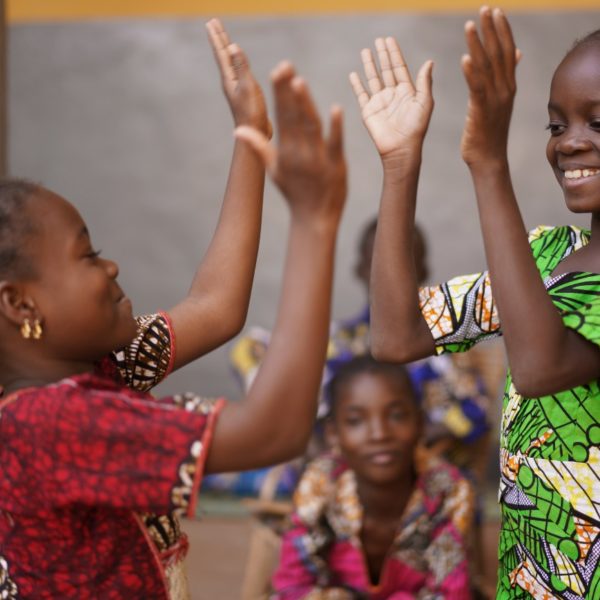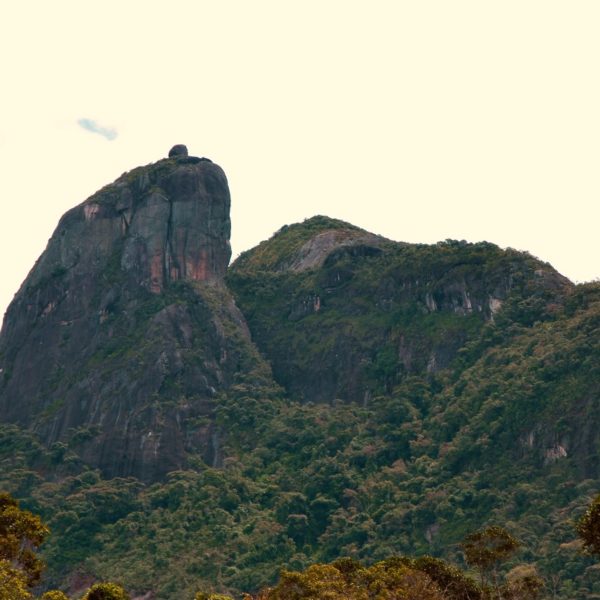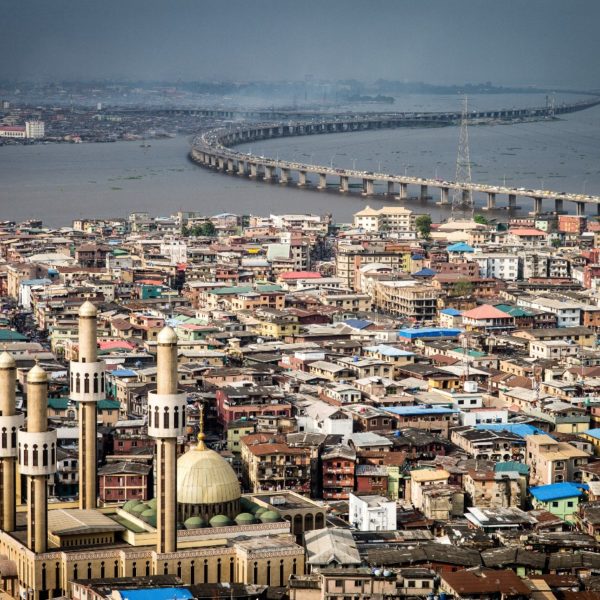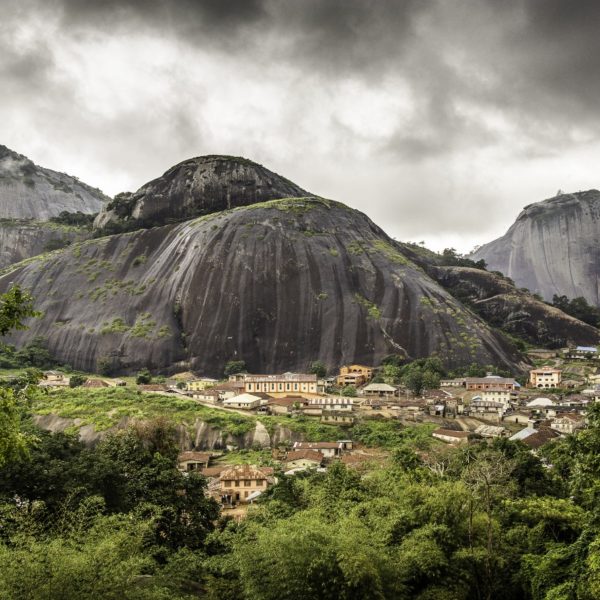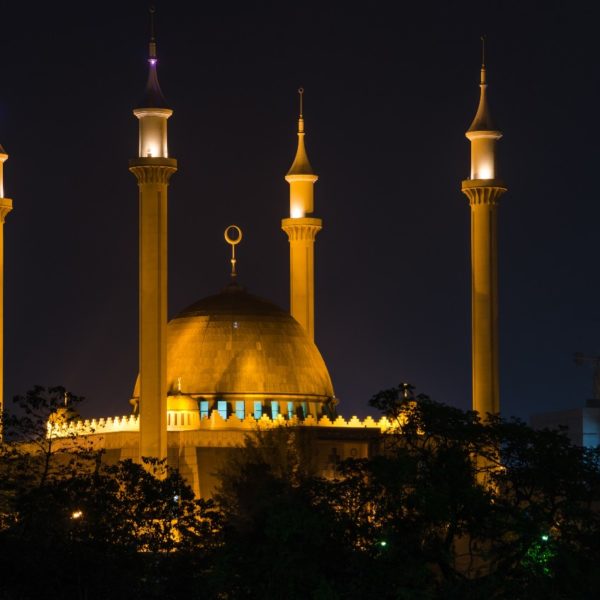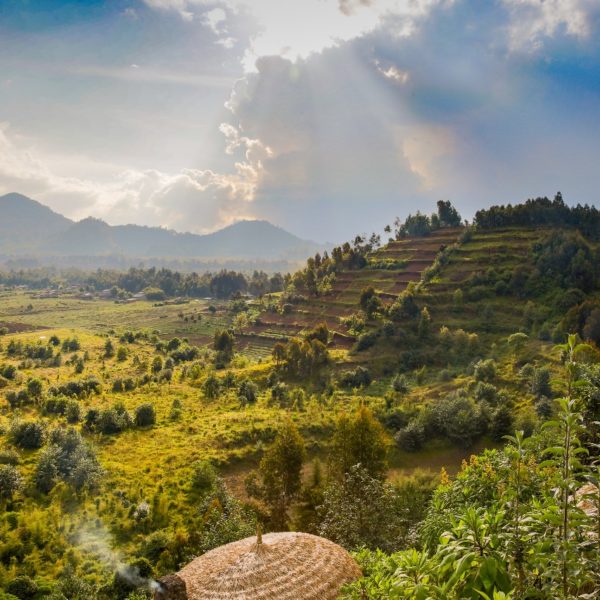Nigeria – African Kaleidoscope – 12 days
Nigeria is the most populated and one of the most culturally, ethnically and religiously diverse countries of Africa. During our trip, we will visit capitals of ancient kingdoms that date back to more than 1000 years ago, such as Zaria, Kano, Osogbo or Ile-Ife.
During our journey, we will get to known the largest town of Africa and the first capital of Nigeria – Lagos – and the new capital Abuja that is located in the central part of the country. We will also visit local markets and observe the work of traditional artisans, for example the traditional method of dying textiles in the 500-year old dyeing pits of Kofar Mata in Kano. During only twelve days of our trip, it will be difficult to get a real insight into the cultural mosaic of Nigeria but certainly a visit in this country and contacts with its inhabitants will make an indelible impression.
itinerary
Flights to Lagos usually take place in the afternoon and evening. After arrival, visa formalities. Transfer to the hotel and, after a short rest, an organisational meeting and dinner.
D.
Po breakfast, we will set off for Badagry. We will take the road along the Atlantic coast, towards the border with the Benin Republic. The town of Badagry was developed in the 18th century when it became the main harbour whence the ships sailed that transported slaves to the South and Central America. We will visit this ancient harbour and we will see the old slave market and museum of slavery. Dinner in one of local restaurants. Night rest in Badagry.
B. L. D.
After breakfast, we will leave Badagry and set off for Ibadan. En route we will visit Abeokuta, a capital of the Ogun state. The town was inhabited mainly by the Egba ethnic group. In Abeokuta we will visit its ancient natural fortress and now a viewpoint – Olumo Rock. Then we will go to the Itoku market where we will be able to see – and also buy, if anyone wants – adire, traditional indigo-coloured textiles, very popular among Yoruba women. We will also visit the fetish market and the place where they sell traditional medicines. After lunch, we will continue our trip to Ibadan. After arrival, check in at the hotel and dinner.
B.L.D.
After breakfast, a short visit in Ibadan where we will see a centre for research on tropical flora. Then we will travel to Oyo, the old capital of the Oyo country that flourished at the turn of the 17th and 18th centuries. We will visit a royal palace and other interesting sites. We will go for lunch to Ilorin. The next stop on our way will be the town of Esie where we will visit a museum of tomb statues made of soapstone – it is one of the oldest museums in Nigeria. We will go Osogbo for dinner and night rest.
B.L.D.
After breakfast, we will set off to visit Osogbo – the capital of the Osun state that is called the granary of Nigeria. The town is also known for its annual festival at the Osun river. We will visit the Osun-Osogbo Sacred Grove devoted to the goddess of fertility Osun. It is the place where religious rites are still practiced and one of the most important places for the Yoruba people. The Osun-Osogbo Sacred Grove is also the last fragment of the natural tropical forest that used to grown in the south of Nigeria. Then we will go to Ile-Ife, which is one of the most important centres of culture and art of Western Africa. We will visit the National Museum in Ife with its collection of terracotta sculptures and bronze figures. We will also see the Ooni palace. In the afternoon, return to Osogbo for dinner and night rest.
B.L.D.
After breakfast, we will set off for Abuja. En route we will stop in Lokoja to have lunch and some rest. Before leaving for the town, we will go the Mount Patti viewpoint whence we can admire the panorama at the confluence of the Niger and Benue rivers. In Lokoja we will visit one of the first schools in Nigeria, founded in 1865. Moreover, we will see the Iron of Liberty statue – the place commemorating the abolition of slavery in the area of today’s Nigeria. After lunch, we will set off to Abuja where we will arrive late in the evening. At the end of day, dinner and well-deserved rest.
B.L.D.
In the morning, after breakfast, a whole-day visit to Abuja. It became the capital of Nigeria in 1991 when because of overpopulation of Lagos the Nigeria government decided to move the capital to the centre of the country. In comparison with Lagos, Abuja is a much smaller and calmer city. During our visit, we will take a walk around the Millennium Park. We will also see the National Christian Centre and the National Mosque. Both buildings face each other across Independence Avenue and Constitution Avenue, near the government district. The architectural layout of the Nigeria capital is inspired by the multi-ethnic and multi-religious nature of the country. Dinner and night rest in Abuja.
B.L.D.
After breakfast, we will set off to Kaduna. We will take a ride on the newly built train line. After arrival, we will visit Kaduna – the capital of the Kaduna state, and important region of Central and Northern Nigeria. We will see the branch of the National Museum of Nigeria that has a collection of archaeological artefacts related to the northern part of the country. We will also see the Arewa House Museum which also plays the role of a research centre for the studies of history and culture of the regions. In the evening, dinner and night rest in Kaduna.
B.L.D.
After breakfast, we will start to head north to Kano. En route we will stop in Zaria, the capital of the ancient Zazzau kingdom of the Hausa people. It was one of the most important trade routes between the Gulf of Guinea and the Mediterranean shore. After the visit of Zaria, we will continue our journey to Kano, the largest town in the north of Nigeria, founded in the 7th century when iron ore mining was started in the nearby Dalla Hills. After arrival, check in at the hotel and dinner.
B.L.D.
Whole-day sightseeing of Kano, which we will begin from a visit in the Kano Emir’s palace near which we will admire the old city walls. Then we will go to the Kurmi Bazaar established by the local emir in 1498. We will also visit the district of artisans where we will be able to see many traditional crafts, including traditional dyeing of fabrics in the dyeing pits called Kofa Mata. Some of the tanneries are over 500 years old. While staying in Kano, we will also visit the Gidan Makama museum housing the collection of art related to the Northern Nigeria territory. Dinner in one of local restaurants and return to the hotel.
B.L.D.
After breakfast, transfer to the airport and flight to Lagos – the first capital of Nigeria and one of the first colonial towns in the western part of Africa. The first Portuguese trading posts were established at the end of 15th century. Currently, Lagos is the largest city in the continent, with a population of over 21 million inhabitants. Nowadays, it is the largest industrial and service centre of Nigeria. During our stay, we will visit historical sites, such as the Brazilian district and the Tinubu Square as well as the currently constructed new part of the city – Eko Atlantic. In the afternoon, we will take a cruise on the Lagos lagoon from which we will admire the panorama of the capital. In the evening we will go to the farewell dinner.
B.L.D.
After breakfast, our last visit to the city – we will go to the Nike Art Centre and to the Lekki Market, one of the largest artisanal markets in the Western Africa. In the afternoon or evening, depending on the departure time, transfer to the airport.
B.L.
Practical information
- the length of the tour : 12 days in Nigeria;
- start of the trip: Lagos;
- end of the trip: Lagos;
- the highlights of this expeditionWe will start and end our journey in Lagos. The highlight of the tour will be the possibility of getting to know the culture, traditions, art and history of the ethnic groups and nations that currently constitute the Nigerian society. We will visit capitals of ancient kingdoms and vibrant local markets where we can still meet traditional artisans and shamans. During our tour, we will have an opportunity to visit the largest metropolis of Africa, which is Lagos, and the new Nigerian capital – Abuja.
It will be a sightseeing tour to an African country that is relatively unpopular with tourists. The tour will be oriented on cultural, sightseeing and historical tourism. Because of the special nature of the visited places and of the expedition features, the travellers are required to be physically and mentally fit. Because of the condition of roads, some drives between towns may be long and tiring. During the planned tour, temperatures during the day will exceed + 30 degrees Celsius in most part of Nigeria. Moreover, the high humidity of the air and intense rainfalls may cause fatigue and discomfort. Accommodation is planned only in hotels. No hikes are planned during our tour, but we will visit many towns on foot. The itinerary was designed to enable best possible viewing of the places away from mass tourism routes, while meeting basic safety standards and ensuring comfort to the travellers. You should bear in mind that Nigeria is a country of many cultures and traditions, having a special and unique character. The southern part of the country is mostly inhabited by Christians while the northern part is inhabited by Muslims.
Depending on the political situation, the length of the tour and the order of visited places may change. In a situation of a serious threat to travellers’ safety, the tour may be cancelled. We will keep you updated as to whether the expedition is possible.
Your passport must be valid for at least 6 months after the planned end of the tour.
Before departure, you must obtain the tourist visas at one of your nearest embassies of Nigeria. Having booked the tour, the travellers will receive a letter of invitation necessary for obtaining the visa. The completed visa application and two current colour photographs will also be necessary.
To obtain a visa, you may use the services of visa agents or the help of BTP Adventure.
You should take with you for the trip a photocopy of your passport (the photo page) and an additional ID document.
- Take with you for the trip the yellow vaccination booklet with certified valid yellow fever vaccination – it is impossible to enter the Republic of Nigeria without this document and vaccination.
- Before departure, we recommend a consultation with a family physician and a tropical medicine specialist.
- Vaccination against yellow fever, tetanus, diphtheria, viral hepatitis A and B, meningococci and typhus is recommended.
- Malaria prevention measures (Malarone or Lariam) are necessary.
- There is a risk of dengue and tuberculosis at the places planned to be visited during the trip.
- We recommend visiting https://travelhealthpro.org.uk/countries.
- During our expedition, we will drink only bottled water. You should avoid ice in your beverages and eating raw or undercooked foods. In Nigeria, healthcare is at a satisfactory level in larger towns.
- The cost of a private medical visit is usually over USD 100, and a day of hospitalisation costs between USD 100 and 200.
- Because of difficult travelling and accommodation conditions and particularities of the country, good physical fitness is necessary. Furthermore, your patience will definitely be tested and you should prepare for hardships of long journeys, lassitude and discomfort.
- Please take with you a first aid kit and a sufficient supply of your regular (prescription) medicines, if any. Some useful contents of the first aid kit:
- insect repellents – absolutely necessary
- medicines for malaria prevention
- high sun protection cream (recommended SPF 50)
- disinfectants, wound dressing materials
- analgesics and antipyretics
- antibiotics, as a precaution
- anti-diarrhoeals, electrolytes and vitamins
The Republic of Nigeria is currently a relatively stable and safe country. In some regions of the country, there is a terrorist threat or armed conflict risk. However, we design our itineraries so as to avoid places that are potentially dangerous (the north-eastern region – area of operation of Boko Haram terrorists, and the southern region – the Niger Delta area).
It is very important to stay vigilant at such places as markets and crowded streets, because of pickpockets and rare robberies.
Owing to the good relations we have with local contractors, we keep following the news to be aware of any potential threats and safety risks. We also recommend you to read the latest news on the Foreign & Commonwealth Office website: https://www.gov.uk/foreign-travel-advice.
During the tour, please take seriously the instructions of our contractors, guides and tour leader.
It is very important to respect local customs and abide by local laws and regulations. You will receive the necessary information on an on-going-basis from your local guides and the tour leader.
It is strictly prohibited to take photos and make video recordings at military and police installations and at airports. You are also not allowed to take photos where people in military/police uniforms are present!!!
Photographing people is possible only when they expressly agree to it. Taking pictures when the subjects have not allowed it often ends up with escalating aggressive behaviours.
The legal tender in the Republic of Nigeria is Naira. Currency exchange is possible at the airport, in banks and in most hotels. Using payment cards is possible in many hotels and gift shops but caution should be exercised because of frequent data theft scams. The best foreign exchange rate is for euros and US dollars. UK pounds are not generally exchangeable.
For current foreign exchange rates see www.xe.com or install xe.com on your phone.
The official language in the Republic of Nigeria is English. Several dozen local languages are also spoken. For self-guided tours, you must speak English.
The Republic of Nigeria is a multi-ethnic and multi-religious country. The southern and central parts of the country are inhabited mostly by Christians of various Churches. An important part of the customs and legislation in the south of the country is the tradition of the individual ethnic groups and local communities. The northern part of the country is inhabited mostly by Sunni Muslims. The law and customs are based in the religious doctrines, which translates into the prohibition of drinking alcohol in public and the need to wear the appropriate clothes covering the body.
It is very important to respect local customs and abide by local laws. You will receive the relevant information from your local guide or the tour leader.
The tour dates are proposed in periods of the best possible weather conditions at the sites included in the itinerary. The best time for expeditions to Nigeria is the period between September and February. In the south of the country, temperatures during the day exceed +30°C and +20°C at night, while in the north temperatures during the day exceed +40°C and +25°C at night . Rainfalls should be expected. Major problems are low quality of roads, dust in the air in the dry season and mud after rainfalls.
For detailed information see https://www.meteoblue.com/en.
Mobile network coverage is available in most towns and villages. Purchase of a local SIM-card with an Internet package is possible and relatively cheap. Before the trip, please enquire with your mobile network operator whether they have a contract signed with operators in the Republic of Nigeria and what the prices of call and SMS roaming are. To avoid a nasty surprise, we recommend disabling mobile data usage.
- Wi-Fi is available at some hotels and in some restaurants.
- Additionally, we recommend taking a capacious power bank.
- Power sockets of type D and G. Voltage 240 V, frequency 50 Hz.
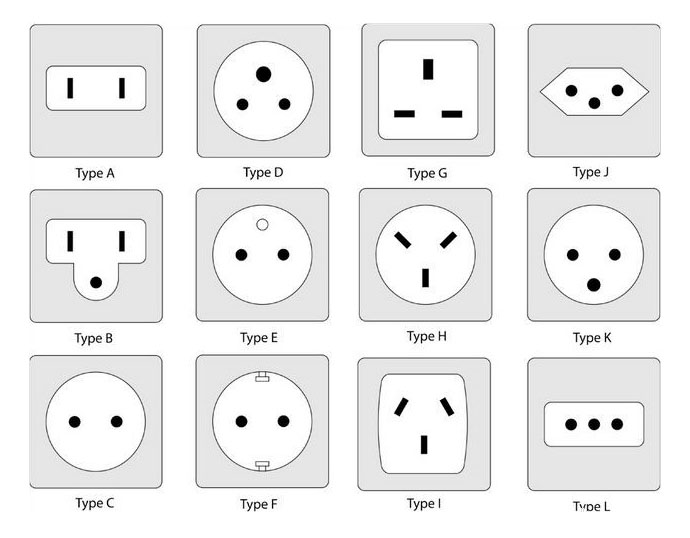
For climatic and cultural reasons, loose garments will be most appropriate: long trousers, long skirts, long-sleeved shirts, which can be easily washed and will quickly dry. The most comfortable footwear for the tour will be lightweight boots. Palladium brand boots are recommended. You may walk in open sandals but in towns and desert regions this may be uncomfortable because of stones, thorny plants and sharp grasses. Light hiking boots may prove useful. The following are worth taking:
- sachet for documents and money
- wet wipes for body cleaning and antibacterial gels
- rain jacket
- fleece or warmer blouse – in some regions of the country, especially in the north, nights may be cold
- head cover and sunglasses – mandatory, the sun is no joke!
- comfortable summer clothes, useful during practically the whole trip
- light T-shirts/shirts
- useful odds and ends: torch, Swiss Army knife, sewing kit (usually is not needed but is not heavy and does not take much place), chargers, mug (for special occasions); inflatable neck pillow, useful on the plane and during car rides; small wallet for the local currency; books to pass the time on flights and car rides
Price
Price: £ 2890 p/p
Domestic flight Kano – Lagos
During the tour, we will we will travel by passenger cars or minibuses, and also, if necessary, by off-road vehicles. Furthermore, our itinerary includes a train ride from Abuja to Kaduna and a motor boat cruise around the Lagos Lagoon. Speed depends on the road surface conditions, terrain characteristics and number and length of stops.
We are not able to guarantee a uniform accommodation standard at each of the planned sites during the stay in the Republic of Nigeria. Our priorities are your comfort, appropriate location, character of the site and historical, cultural and natural values. We always place emphasis on the support of local community when selecting the sites for our accommodation. In general, rooms will be assigned on the assumption of two people sharing a twin room (rooms with individual bathrooms). The surcharges for single rooms are quoted in the “Price” section. During our tour, we plan accommodation in 4- and 5-star hotels, depending on availability.
Meals are included in the tour price, as specified in the itinerary. B – breakfast, L – lunch, D – dinner. In most places we will visit, shops and markets are well stocked but prices of some goods – especially the imported ones – may be higher than in most European countries. The Nigerian cuisine is extremely varied, reflecting the local particularities and cultures of the individual regions of Nigeria.
For information about the local costs of living see https://www.numbeo.com/cost-of-living/.
Services of a tour guide, local and special guides in National Parks
All entrance fees and permits to visit national parks and reserves in the itinerary
Trip preparation, visa mediation, the invitation necessary to obtain a visa
Costs of the main flight to and from Lagos
Costs of flight tickets are not covered by the tour price. BTP Adventure does not directly arrange and buy tickets for international flights. However, we may suggest the best connections and airlines. For this purpose, contact us by e-mail or call us.
Visa for the Republic of Nigeria
Insurance is not covered by the tour price. Having valid insurance is a condition for taking part in the trip. We recommend taking out insurance that will be appropriate for the planned itinerary and for your individual state of health and needs. Please send us the proof of your insurance contract.
You can purchase insurance on your own on the website of Axa or any other insurance company: https://www.axa.co.uk/travel-insurance/.
BTP Adventure may help you obtain adequate insurance cover. If you want our help, please contact us.
Meals other than those listed in the final itinerary.
Personal expenses and souvenirs.
Surcharge for a single room: 550 £
The price does not includes the cost of tips and porters’ fees.
supplementary payment for the additional accommodation In the case of arrival or departure on a different date,
Final notes
We will keep updating the detailed information on the safety and final itinerary of the tour. Before you decide to submit the booking form, please learn about the current political and sanitary situation in the Republic of Nigeria, especially at the places on the itinerary of our tour.
The planned expedition is an exclusive proposal prepared on the basis of our experience and knowledge of the local peculiarities and major sightseeing attractions of the Republic of Nigeria.
We are committed to ensure the best possible and safe and, as far as feasible, comfortable travelling through this rarely visited and extremely interesting country which is the Republic of Niger.
Depending on the political situation, the length of the tour and the order of visited places may change. In a situation of a serious threat to travellers’ safety, the tour may be cancelled. We will keep you updated as to whether the expedition is possible.
The Nigeria tour may be combined with the trips to Togo, Benin, Ghana, Mali, Liberia, Niger or Cameroon. If you are interested, please contact the office.
With any questions please contact BTP ADVENTURE
2890 £ Per Person
The trip can be combined with an expedition to the Democratic Republic of Congo, Cameroon, Ghana, Togo Benin and Uganda.

